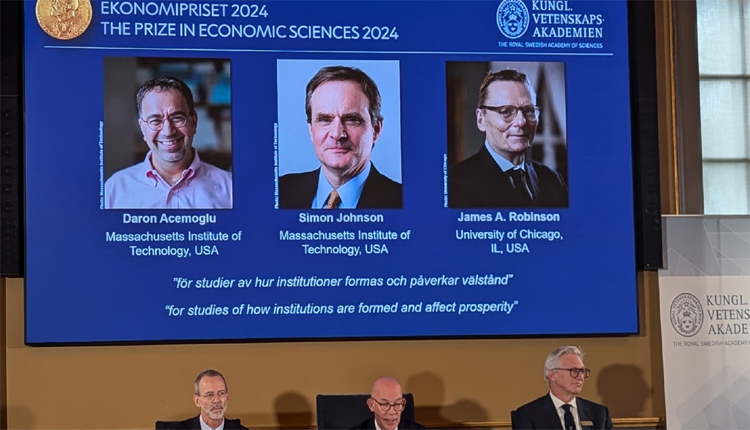Stockholm: The Nobel Prize in Economics for 2024 has been awarded to economists Daron Acemoglu, Simon Johnson, and James A. Robinson for their pioneering research into how institutions are formed and how they influence societal prosperity. Their work delves into the political and economic structures that shape societies, focusing on the dynamics between elites and the general population.
The Royal Swedish Academy of Sciences, which awards the prize, explained in a social media post on X (formerly Twitter), that the laureates’ model highlights three key factors affecting institutional development. The first is the ongoing struggle over resource allocation and who holds decision-making power—whether it lies with the elite or the broader public.
The second component of their research illustrates how, under certain circumstances, the general public can challenge the ruling elites by organising and forcing them to relinquish power. In this context, power extends far beyond simple decision-making authority. The third factor addresses the “commitment problem,” which occurs when elites have no choice but to hand over decision-making power to the public.
The Nobel Prize in Economics, officially known as the Sveriges Riksbank Prize in Economic Sciences in Memory of Alfred Nobel, was established by Sweden’s central bank in honour of the 19th-century inventor of dynamite, Alfred Nobel. The first recipients were Ragnar Frisch and Jan Tinbergen in 1969.



Comments are closed.